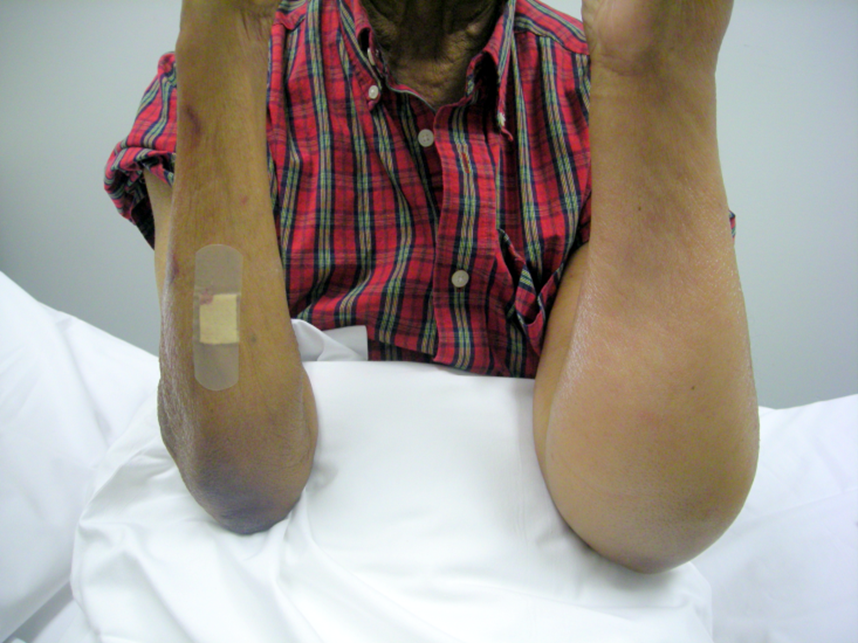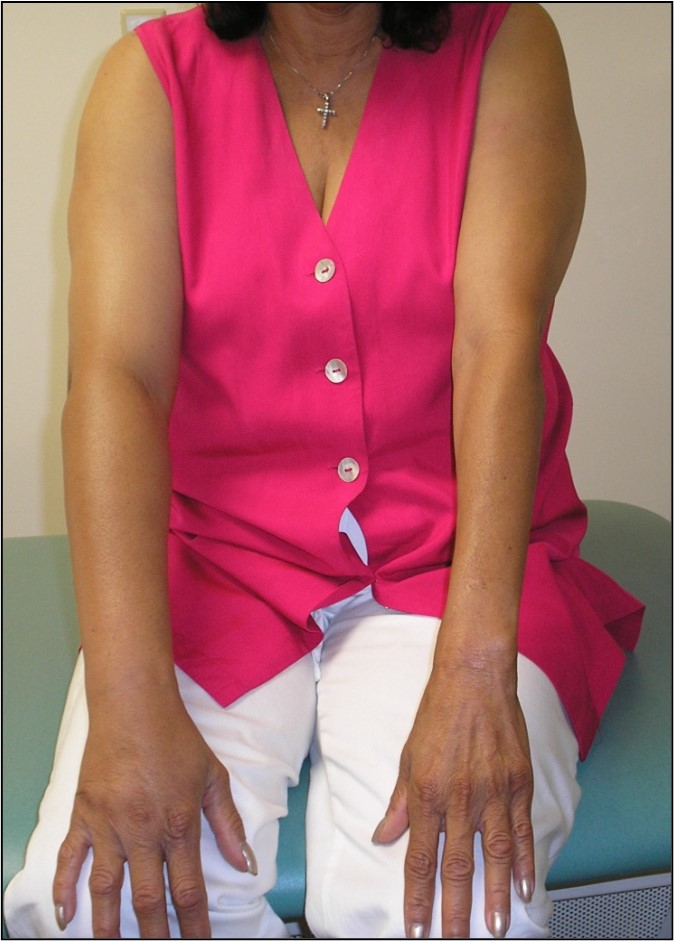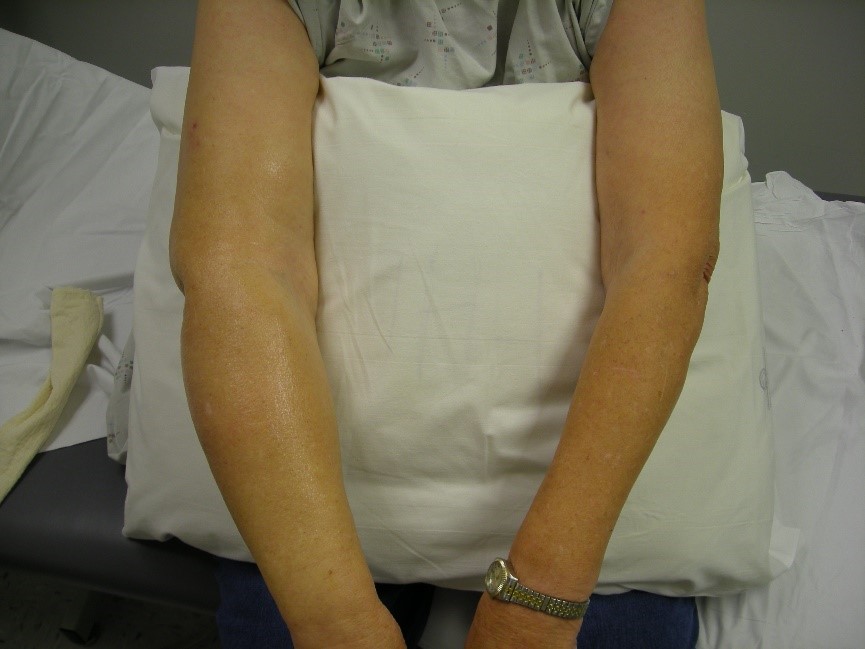Written By: Nicole Scheiman, DrOT, OTR/L
 Who
Who
One of the most commonly reported types of lymphedema breast cancer related incidence varies from 8-56% of patients. Individuals who experience the following, are at an increased risk of developing breast cancer-related lymphedema (examples):
- Had an axillary lymph node dissection (ALND)
- Had regional lymph node radiation
- Have a high body mass index (BMI)
- Used Taxane drugs
What
Lymphedema is an accumulation of protein-rich fluid in the tissues, which results in swelling of a body part. It has been referred to as “Cancer Treatment’s Dirty Little Secret” due to limited education on lymphedema risk reduction prior to onset.
Where
Lymphedema can occur anywhere in the body. Breast cancer-related lymphedema typically occurs in the involved side/upper extremity and can occur in the chest and abdomen region.

Male breast cancer related lymphedema in left upper extremity. Do you see similarities from picture #1?

What about picture #3? Notice anything with her posture? It’s always important to complete a holistic assessment of our patients as having a heavy upper extremity can have a negative impact on posture.
When
Reports of time of onset vary from within days to more than 30 years after the treatment of breast cancer.

This is an anthropometric measuring tape and if you do a lot of measuring…this will CHANGE your life as inter and intra rater reliability is greater and it enables you to take measurements much more quickly as it is user friendly to hold.
Treatment
- Prevention
- Complete Decongestive Therapy
- Weight management
- Kinesiology taping
- Compression garments
- Pneumatic compression
- Laser therapy-decrease tissue fibrosis
- Surgery-micro-techniques, liposuction
- Exercise does NOT cause lymphedema
- NOTE: Diuretics are ineffective.
- Decongestive Lymphedema Exercise
- Gravity resistance to resistance bands-dumbbells-weight machines
- Proximal to distal active exercise
- Incorporate deep breathing
- Use external compression
- Goal-improve muscle pump effect on lymphatic and venous systems
Did this overview of breast cancer related lymphedema spark your interest to learn more about cancer and best practices for your patients? If so, please explore my online and in-person courses including:
References:
Breast Cancer Statistics. (2020, June 08). Retrieved December 23, 2020, from https://www.cdc.gov/cancer/breast/statistics/index.htm
Stubblefield, M. (2019). Cancer rehabilitation: Principles and Practice. 2nd Edition. New York: Springer Publishing.
U.S. Breast Cancer Statistics. (2020, June 25). Retrieved December 23, 2020, from https://www.breastcancer.org/symptoms/understand_bc/statistics


